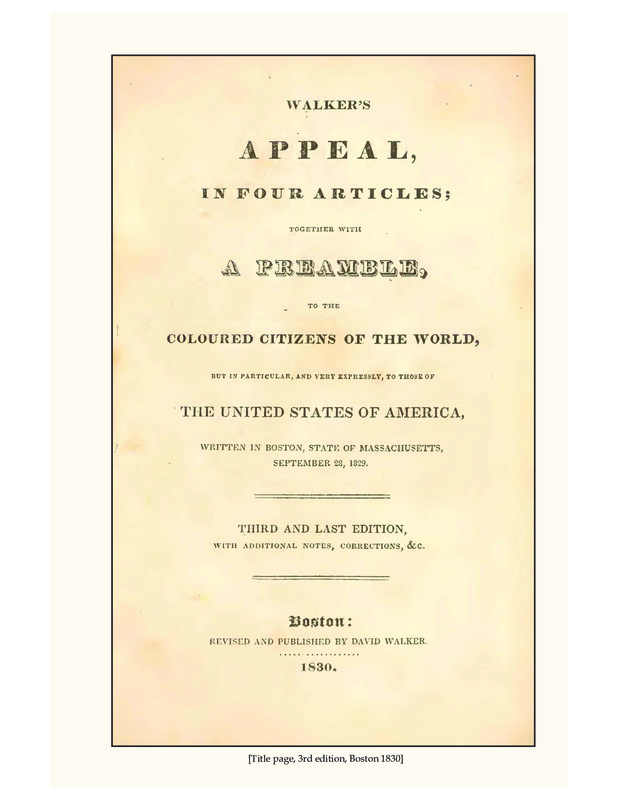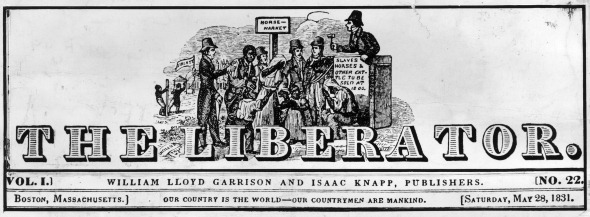William Lloyd Garrison's Engagement with David Walker's Appeal

David Walker's Appeal
Walker's Appeal, in Four Articles; Together with a Preamble, to the Coloured Citizens of the World, but in Particular, and Very Expressly, to Those of the United States of America, Written in Boston, State of Massachusetts, September 28, 1829
Abolitionist movements in the pre-Civil War United States encompassed multiple, contested policies. In the late 1820s and early 1830s, numerous white antislavery activists supported slavery’s ending via a gradualist approach, a strategy that emphasized limiting slavery’s growth and allowing for the nation’s egalitarian principles to shepherd a gradual diminishment of slavery’s importance over time. Unsurprisingly, black abolitionists favored more radical approaches such as immediatism, which demanded unconditional, instantaneous emancipation and civil rights for free and enslaved African Americans.
While antebellum abolitionists struggled to generate sweeping and effective opposition to slavery among whites, freed and enslaved African Americans demonstrated an impressive capacity for turning the liberty rhetoric of the American Revolution era into persuasive demands for slavery’s ending, revealing how ideals grounded in the American Enlightenment influenced the competing and shifting attitudes held by different segments of the United States’ population toward slavery in the early to mid-19th century.

The Liberator Masthead
The masthead of William Lloyd Garrison's abolitionist newspaper, The Liberator, usually included an illustration either showing slavery's evils or envisioning a future post-emancipation.
This project will illuminate the significance of black intellectuals' contributions toward furthering white abolitionists' adoption of immediatism through an examination of William Lloyd Garrison's engagement with the writings and opinions of David Walker, an African American antislavery activist. Garrison, a leading white abolitionist, embraced increasingly radical positions subsequent to his interactions with the extreme views contained in David Walker’s incendiary 1829 abolitionist manifesto, An Appeal to the Colored Citizens of the World.
By demonstrating Garrison’s willingness to engage with Walker’s beliefs regarding black unity, the colonization movement, interracial marriage, and white hypocrisy, this project will show how Garrison garnered the black community’s support, and consequent survival of his formidable antislavery newspaper, The Liberator, which eventually became the most important periodical of the antebellum abolitionist movement. In turn, this project will also examine how The Liberator’s unwavering entreaties to the ethical conscience of the nation resonated with the religious moral imperatives initially put forth in David Walker’s passionate Appeal, helping to ensure that Walker’s prophetic vision for slavery’s ending would eventually come to pass.